Seiya Satô
Birth : 1936-01-10, Tokyo, Japan
Death : 2018-12-21

A death occurs during a mountain-climbing expedition.

Ginshiro, threatened by poor repute and upcoming star Tachibana, forces his friend Yasu to marry Konatsu, Ginshiro's pregnant mistress; Yasu becomes a stuntman to make ends meet.

Elite college graduates commit perfect financial crimes though loopholes in the law during the 1950s.
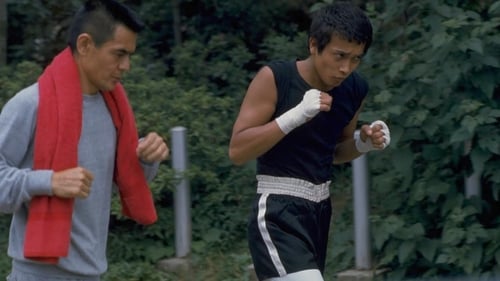
Promoter
In the midst of a match, a successful boxer - Hayato, has had enough of the sport. He lets himself get knocked, quits boxing, leaving his wife and start living alone with his mangy dog. One day a young mediocre boxer knocks at the door and wants to be Hayatos apprentice.

Kumi Taguchi is a model who leaves her boxer boyfriend after he sustains an injury. She meets and quickly marries Hideo, the heir to a corporate empire. Hideo's father, Takehiko, lusts after Kumi. Takehiko sends his son away, ostensibly on a business trip, but actually so that he can be murdered by Takehiko's henchmen. Takehiko seduces Kumi, but is frustrated when she refuses to perform oral sex on him. Angered, Takehiko forces Kumi to undergo surgery in which her clitoris is transferred to her throat, thereby requiring that she engage in oral sex in order to have an orgasm. Hideo, the supposedly murdered son, returns having paid off his assassins. Hideo shoots and kills his father, but Kumi grabs the gun and kills Hideo so that she can inherit the family's fortune

The first of many movies featuring the lighthearted adventures of two truck drivers. Momojiro and his best friend Kinzo take to the road on their cargo trucks impressing each other with their skills in driving fast and evading the police while transporting commodities throughout the country. Chance encounters with people along the way help them to come to terms with events clouding their past and offer them a shot at redemption.

Jimmy Tokigawa
Shihomi Etsuko plays a race car driver who also lends out her services to the Japanese Secret Service. Although there really isn't much of a "chase" to be seen, Shihomi does pursue a cartel of drug runners and assorted Japanese yakuza types. While the story is pure 70's exploitation and gritty crime drama, the best reason to see it is for the Martial Arts Action of Etsuko Shihomi. The action is over-the-top and at times hilarious (i.e. Shihomi battling the lead criminal atop a moving gondola or Shihomi battling a whip-wielding Catholic Nun).
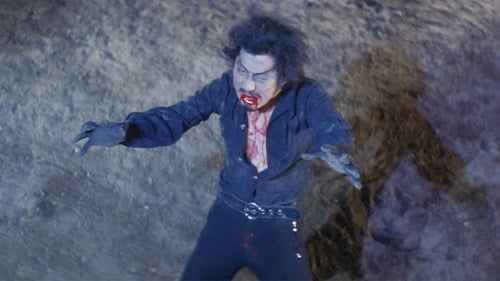
Manager
Akira Inugami is the only survivor of a clan of ancient werewolves who relies on his supernatural powers to solve mysterious crimes. After a series of bloody killings perpetrated by an unseen force, Inugami uncovers a conspiracy involving a murdered cabaret singer, corrupt politicians, and a plot by the J-CIA to harvest his blood in order to steal his lycanthropic powers! At the same time, Inugami also discovers the truth behind his family heritage, and that he may not be the last of his kind.
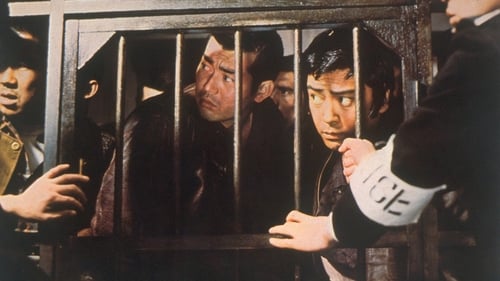
A look at the life of renegade yakuza, Rikio Ishikawa, particularly the years from 1946 to 1950 when his violent antics get him in trouble with his own clan, Kawada, and then with the clan of his protector, Kozaburo Imai. In these years, he can rely on Chieko, a young Tokyo courtesan who gives him shelter. He's banished to Osaka, where he picks up a drug habit. Through it all, he keeps his friends and enemies off balance with unpredictable behavior - and he seems indestructible.
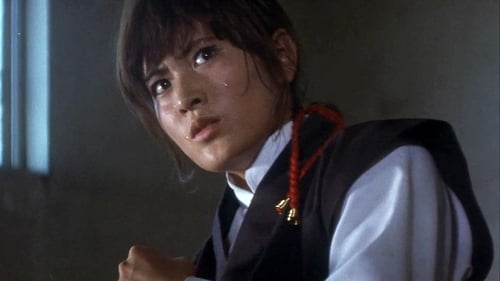
Murakami
Li Mansei is a martial-arts champion turned undercover agent. When he is captured by a drug lord, his sister Li Koryu turns to his former martial-arts school, including the powerful Sonny Kawasaka, for help in the inevitable battle royale.

Movie based on a book by Kakou Senda about the use of women as sexual slaves by the Japanese Army during WW2.
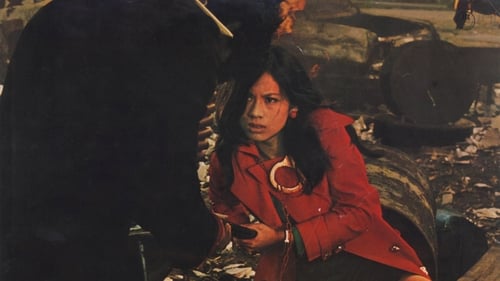
Agent Zero is a cop that uses her own methods for dealing with criminals. After she unlawfully kills a rapist in a violent fashion, she is sent to prison and stripped of her badge. But very soon after, a rich politician's daughter is kidnapped by a ruthless gang. Agent Zero is let out of prison with the mission of going undercover to find the politician's daughter and return her safely. Using her deadly red handcuffs, she disposes of the criminals one by one.
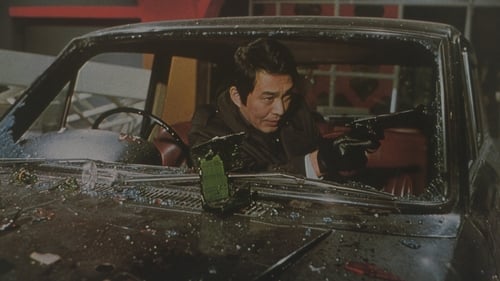
With a Kansai syndicate setting their sights on Tokyo, a former yakuza boss gets dragged back into a world of violence.
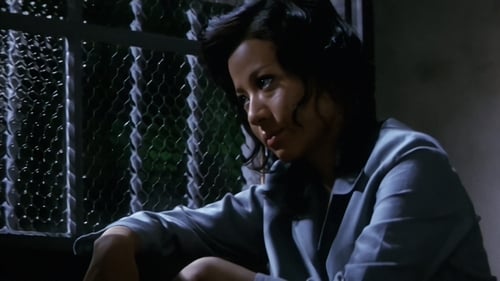
Reiko Ike stars as the daughter of a man who has been pushed into drug dealing by the local Yakuza mob. Having outlived his usefulness to the gang he is murdered and Reiko is gang raped, leading her to attempt a knife attack on the Yakuza boss (Ryoji Hayama) at a swank nightclub. Failing to kill him she ends up in prison, where she befriends a crew of other malcontents (including Yumiko Katayama and Chiyoko Kazama) and meets the Yakuza boss's girlfriend (Miki Sugimoto). Upon release Reiko reassembles her mob and launches a Machiavellian scheme to engineer a gang war between Hayama's Oba Industries and the formerly dominant Hamayasu Clan. The rival gangs begin killing each other off and Reiko works her way closer to her ultimate vengeance.
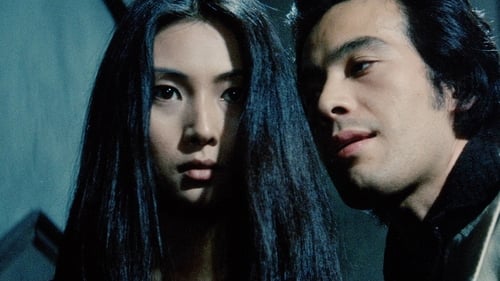
Takahashi
Following her successful prison break, Scorpion begins this third episode in the series hiding out in a brothel. Her prostitute friend tries to keep her identity secret, but the brothel's madam discovers that Scorpion is the ex-girlfriend of the vice officer who killed her lover.
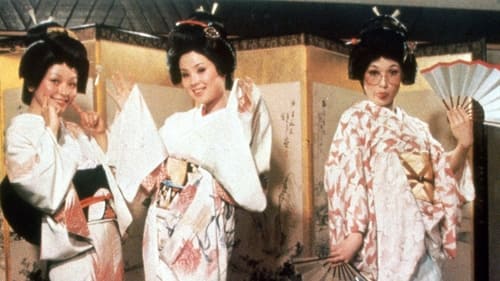
A young girl works as a geisha to earn money for travel.
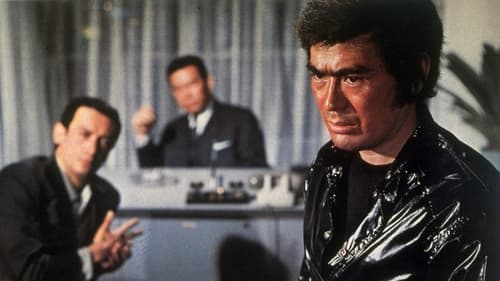
Attacking Asao Uchida's lonely, clifftop mansion in no-holds barred massacre.
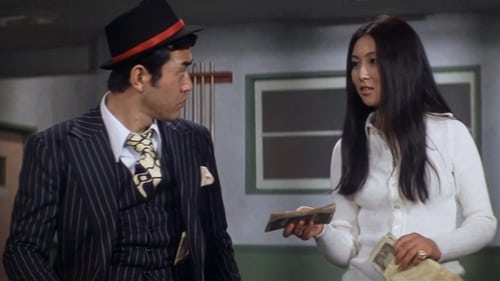
Gang leader Nami (cult film legend Meiko Kaji) kills a member of a yakuza group and goes away to prison. Upon her release three years later, she’s a shamed woman confined to living in the shadowy world of sex clubs and street gangs. She returns to the city to live with her uncle, a billiard-hall owner, and after befriending pimp and ne’er-do-well Ryuji (Tsunehiko Watase), she gets a job working at a hostess club in the chic Ginza neighborhood, where the expensive shops and neon lights conceal a dark world of crime and sexual slavery. But when a rival gang attempts to muscle in on the club, Nami becomes enmeshed in a violent struggle that forces her to wield a skilled pool cue to defend her uncle’s business, and eventually a short sword to wreak bloody vengeance upon her enemies.

A fearless man confronts a yakuza organization pushing the envelope of extravagant & all sorts of violence.

A disgraced yakuza member, framed for the murder of his boss, emerges from prison eight years later with revenge on his mind.

Comedy about a car salesman who invents a condom against premature ejaculation.

With World War II is coming to its end and Japan nearing defeat, Japanese military leaders step up suicide attacks on Allied ships. Toei legend Koji Tsuruta stars as a Kamikaze squad leader who has second thoughts about suicide runs. He becomes torn between his own morality and his duty to his country when he must deal with a pilot under his command who refuses to complete his mission.

Rika is released from girls detention school and then winds up at a lounge bar where she finds her other classmates working. This lounge bar is run by Junko Miyazono.
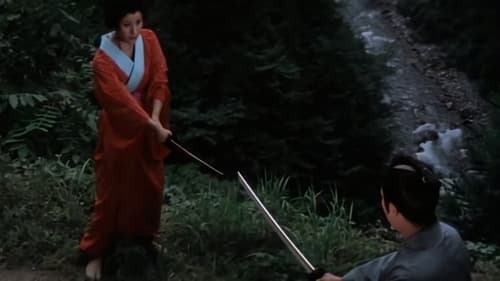
Okatsu the Fugitive is the third film in the "Ohyaku/Okatsu" series. Okatsu; a "tomboy" who is good with a sword. Her father has found her a man to marry and actually she doesn't seem too upset about the situation. At the same time, a bunch of farmers are being slaughtered by a corrupt group running a tobacco smuggling ring. They're being investigated by a man who is documenting their crimes and when they find out about it, they torture him for information but get none. It's not long before he and Okatsu's mother wind up dead and she sets out for revenge.
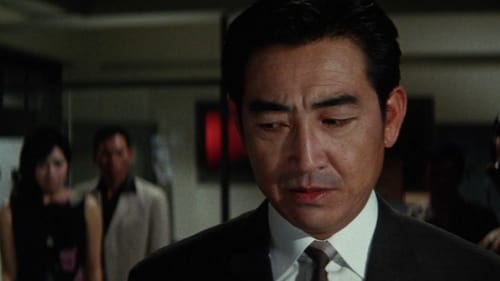
Coming out of jail and hoping for a quiet life, Yokohama yakuza has to take the lead of his gang after the death of his boss. His small group is is taken in a crossfire between a big yakuza group from Osaka at war with the Tokyo alliance for the control of the city. He tries to keep to the old yakuza code but he is no match for the new thugs who live and fight without honor.

Japan nineteenth century. High demand for tattooed geisha generates an entire industry for their "production". Europeans pay more for tattooed beauties. Against this background, and considering the gorgeous tattooed women develop the history of confrontation between two highly skilled masters of tattoo.
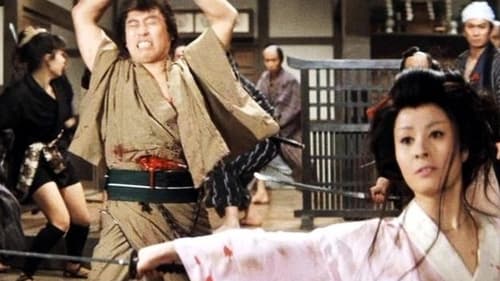
This film focuses on Okatsu; the adopted daughter of a master swordsman. She is a master with a sword herself and her talents far overshadow that of her brother, and real child of the man who adopted her. Her brother unfortunately has a gambling habit, and it plunges the family into trouble when he loses a lot of money in a crooked dice game. After releasing he is unable to pay the debt he owes; the blame is shouldered by the father, who is killed, leading Okatsu on a path of revenge.

Hidejuro is sent to prison after killing the boss of a rival family. After being released, he discovers that his family has scattered and he is taken in by a company of quarry workers, whose boss has a strict code of non-violence. When the rival family tries to take over the company and kills their boss, Hidejuro must choose between his promise of non-violence and his yakuza code of revenge...

With his penultimate film, Uchida revisited one of his popular prewar titles, 1936’s Theatre of Life, an adaptation of Shiro Ozaki’s eponymous novel. Three-time Seijun Suzuki collaborator Goro Tanada wrote a gangsterized adaptation of Ozaki’s story for Uchida at a time when the yakuza had eclipsed the samurai genre as Toei's main cash crop. Protagonist Hishakaku murders a man in a quarrel over a barmaid and goes to jail. In his temporary absence, his girlfriend Otoyo, a former geisha, falls for Hishakaku’s brother, inciting a dangerous love triangle that, in typical yakuza fashion, ends tragically.
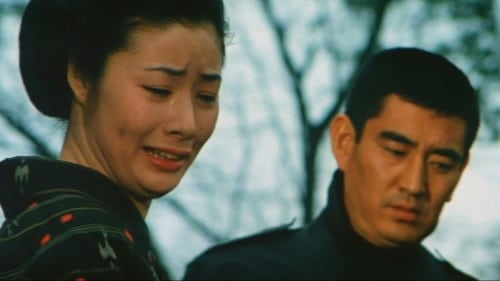
Rival gangs fight over ownership of bicycle race track.

Tadao Horikawa
Jiro, a smooth-talking, womanizing bartender, flees from a Yakuza boss to Yanagase.

A young leader of the Yamazaki family of Nagasaki, Takida (Ken Takakura) is an A-bomb survivor. He fiercely battles violent elements in southern Japan like there is no tomorrow.
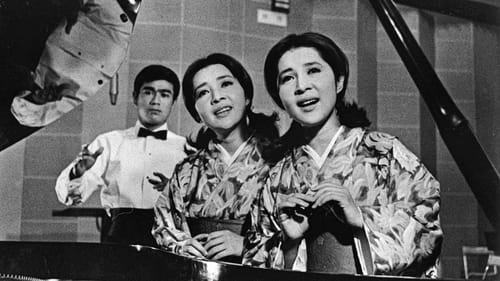
A song drama based on the autobiographical song "The sun is laughing" by composer Endo Minoru. It tells the story of a young man who moves to Tokyo with a big dream of becoming a composer, and despite the unfamiliar city life, sticks to his original intentions with the gentle encouragement of his young wife, and takes the music world by storm.
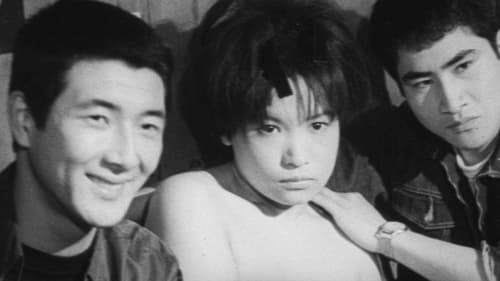
Japanese drama film.

The continuing adventures of the Jirocho gang.

Abashiri Prison is located in the coldest place in Japan. Two men, handcuffed together have escaped from the prison, one a yakuza, the other a petty criminal, and although they hate each other they must work together if they are to evade capture in this harshest of climates.
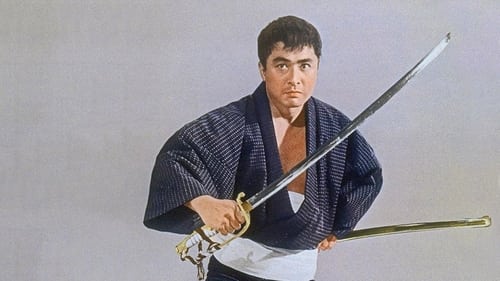
A good set-in-per-WW2 ninkyô type film with outstanding performances.
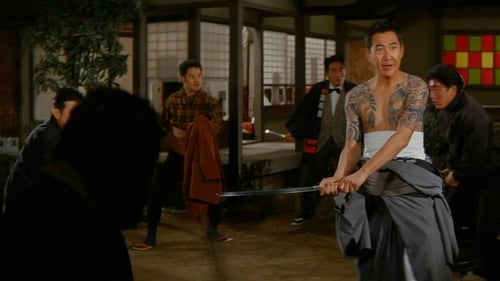
Komatsu Takioka is boss of a Yakuza group rival to Masakichi Kijima boss of the Kikuya group which supports the town vendors unlike Takioka, who will stop at nothing to undermine the vendors and take over the territory. Masakichi will do all he can to protect and support the people. Ryutaro Kijima is senior son to Masakichi, though disowned, he keeps interest in the family from a distance. He will be there for his father and his hot tempered younger brother Katsuo, if they should need his loyal help.
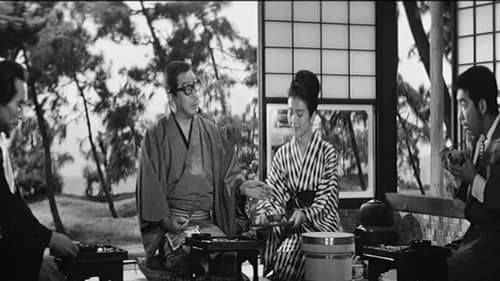
After losing all his money, Kizuka Keita, a seller on the black market, is trying to commit suicide. But he is saved by Morigen, a broker on the azuki beans market. A young man tries to regain his wealth in the bean market.

The feud between two rival delivery companies, Kibamasa and Okiyama, heats up as the head of Kibamasa falls ill.
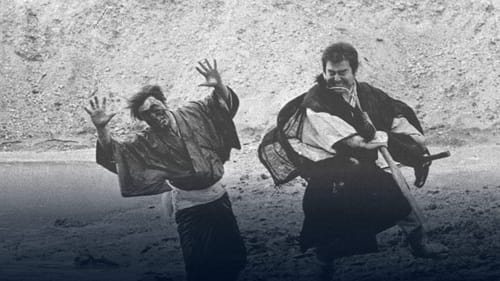
This is the story of a bad man who re-discovering humanity via woman and child while clashing with the yakuza and being hunted by a man called “Death” who has his own dark past. The prototype for the later two yakuza priest series with Shintaro Katsu and Tomisaburo Wakayama. Apparently so. And the swordsman motif seems to have been concurrent with Daiei's first ZATOICHI production.

The Wayside Pebble is an effective drama about the hardships of a childhood spent with a brusque, cold-hearted father and a submissive mother. The year is 1910 and the place is a small Japanese village. Goichi is suffering because he wants to go to school, but his family is too poor to afford that luxury. Even when a kind friend agrees to help out, Goichi's father refuses to give in to his son's request for an education. Instead, he sends Goichi off to work as an indentured servant for a cold-hearted merchant and his family. As tragedy strikes and the suffering of the young boy increases, he begins to look for some way out of his bleak situation.

The third part of the story about feudal boss Jirocho and his underlings.
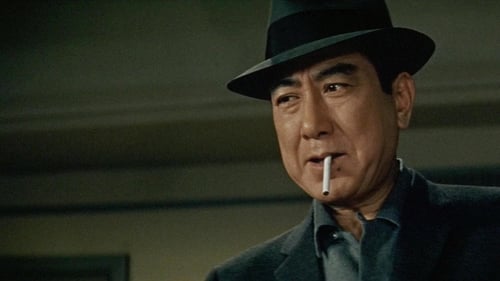
G-men challenge a jewelry smuggling ring. The chase starts in Kyushu and continues to Kobe to Yokohama.

Based on the mystery novel of the same name by Seichō Matsumoto.
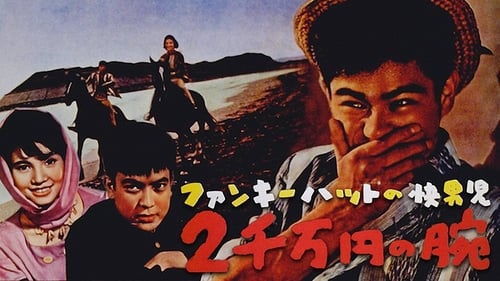
Shinichi “Sonny” Chiba returns as the reckless son of a private detective takes on the case of a minor league baseball pitcher who disappears right before signing a contract into the major leagues. Meanwhile, the body of an orthopedist is discovered in the river.
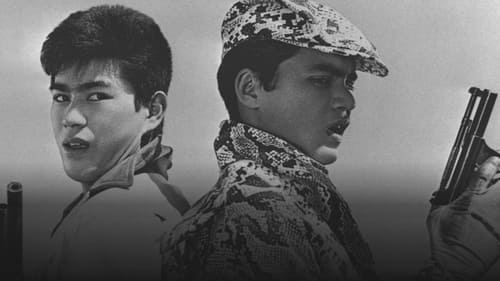
Fukasaku and Chiba are back in a sequel filmed with the same cast and released just two weeks after the first film. This time the storyline is set in a small seaside town and the film favours detective and watadori film influences over westerns. Like its predecessor, the film runs barely over one hour and never drags. It’s a little less goofy, but doesn’t have as beautiful landscapes the first movie had. Not an especially good film, but for fans of Fukasaku and Chiba it’s an entertaining if flawed 60 minutes.



































